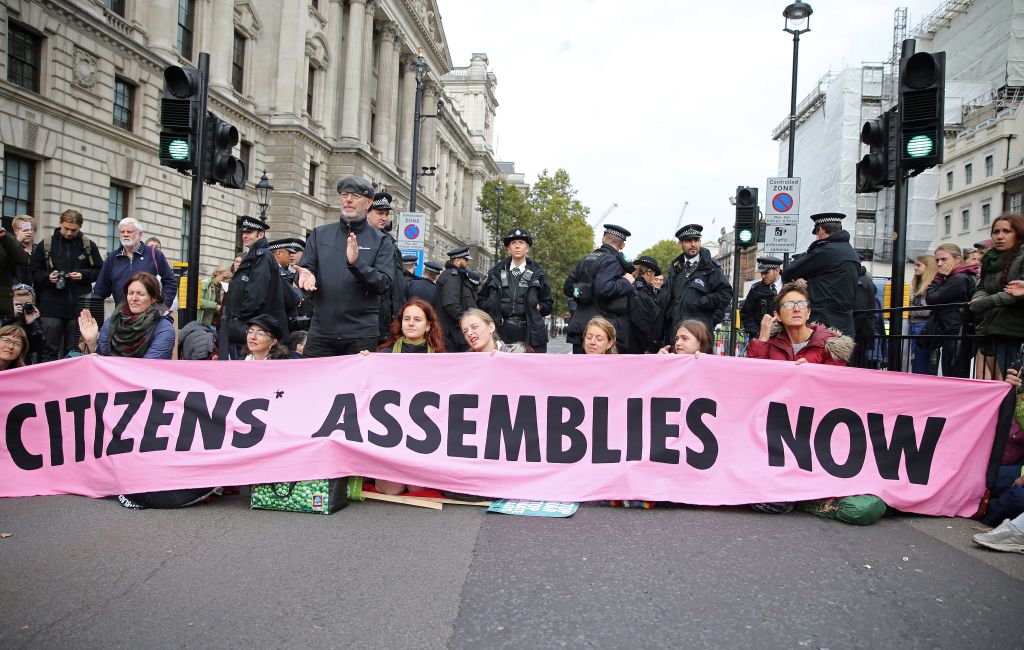It is very rare (although not unprecedented) for law breakers to attempt to be law makers. But Extinction Rebellion is trying to do both, simultaneously. This weekend they are planning to illegally blockade airports and Parliament, reportedly launch cyber-attacks, while pushing a new law to be laid before Parliament when it reopens this week by Caroline Lucas, the sole Green Party MP. It is called the Climate and Ecological Emergency (CEE) Bill. I have huge sympathy for the objectives of Extinction Rebellion – we have an absolute moral duty to pass on a sustainable world to the next generation, and it must be a political priority for which tough decisions need to be made. But I do not agree with their methods. It is not just their law-breaking I oppose, but also their proposed law-making. While the CEE Bill has a few good things, it shows a revealing anti-technology prejudice in rejecting carbon capture and storage – and the hypocrisy of law breakers demanding laws for others. But the real problem is that it shows the group’s contempt for democracy. Extinction Rebellion would create an eco-oligarchy, empowered to impose laws on the country against the wishes of both the government and the electorate. If ever there was a proposal for an environmental dictatorship, this is it.
There is absolutely no chance that MPs will hand over the power to make environmental law
At the heart of the Bill is a proposed ‘Citizens’ Assembly on the Climate and Ecological Emergency’. Citizens’ Assemblies are tried and tested – they can be a good way both to engage the public and develop policy, as has been shown in Northern Ireland and elsewhere. But the power to change policy is always left with those who are elected. Except for this Citizens’ Assembly. This bill would create a Citizens’ Assembly with actual power – if over 80 per cent of its members supported a policy, the government would have to implement it whether or not it wants to, and irrespective of the consequences (with the only exception being if the policy disburses public funds or imposes charges on people). So the Citizens’ Assembly could, for example, impose an immediate ban on the sale and use of petrol and diesel cars or make flying illegal, despite the opposition of the overwhelming majority of voters, as well as government. The only thing the government could do is immediately repeal the Bill and so abolish the Assembly, which rather undermines the whole point of it.
Given the extraordinary powers of the Citizens’ Assembly, it is critical who sits on it. On this, the Bill is suspiciously quiet, although it does stipulate they will be paid. It requires only that the Government has a tendering process for a ‘reputable, independent body’ to establish the Assembly. It would not be elected, so ordinary voters would have no say, and the Assembly members would not have to care about what they think. It would inevitably be dominated by the most extreme climate activists (no doubt Extinction Rebellion members), who could easily get drunk on their power. But however unpopular its extremist measures, there would be no point in voters complaining to their MPs about it: the Assembly would hold ultimate power, until Parliament voted to abolish it. It could quite feasibly lead to anti-environmental civil unrest. Good intentions often have an extraordinary effect of blinding otherwise intelligent people as to their consequences.
There is absolutely no chance that MPs will hand over the power to make environmental law to an unelected, unaccountable Citizen’s Assembly. Or to put it another way: we already have a Citizen’s Assembly to pass environmental laws, it is called Parliament. It is disturbing that Extinction Rebellion not only openly break the law, but they want to grab power and undermine democracy. Ultimately, it shows that they don’t believe they bring the general population with them to achieve their aims. We can and must tackle climate change, but we have to bring the people with us rather than impose it on them. Otherwise ,there will be an almighty backlash, far greater than the Gilets Jaunes in France, that will open the way to a populist, anti-environmental movement. The problem with Extinction Rebellion is that their ignoble extremism undermines their noble cause.
Anthony Browne is the Conservative MP for South Cambridgeshire.






Comments